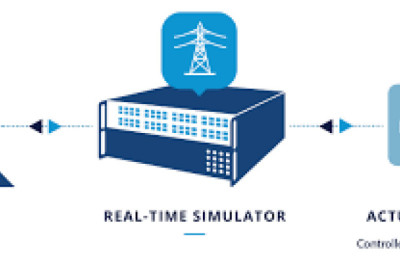views
Introduction
In today's data-driven world, effective data storage and management are paramount. As our digital footprints expand, both individuals and businesses are seeking robust, scalable, and cost-effective solutions to handle their ever-growing data needs. Enter Network Attached Storage (NAS)—a technology that has been quietly revolutionizing data storage in the tech industry. In this blog post, we'll dive into the world of what is NAS, exploring its evolution, key features, and how it's shaping the future of data storage.
The Evolution of NAS: From Simple Data Storage to Advanced Appliance
NAS has come a long way since its inception. Initially designed as a simple way to add storage to a network, NAS has evolved into a sophisticated storage solution that offers a wide range of features and benefits. Modern NAS appliances are not just about storage; they're about intelligent data management, streamlined collaboration, and enhanced data protection.
Key Features and Benefits of NAS Appliances
- Centralized Storage: NAS provides a centralized repository for all your data, making it easily accessible from anywhere on the network.
- Scalability: As your data grows, NAS allows you to easily scale your storage capacity by adding more drives or upgrading to a larger appliance.
- Enhanced Data Protection: NAS appliances offer built-in data protection features such as RAID, snapshots, and replication, ensuring your data remains safe and recoverable.
- Streamlined Collaboration: With NAS, multiple users can access and share files simultaneously, fostering seamless collaboration and productivity.
- Cost-Effectiveness: Compared to traditional storage solutions, NAS offers a cost-effective alternative, especially for small and medium-sized businesses.
How NAS is Reshaping the Future of Data Storage in Tech?
The impact of NAS on the tech industry cannot be overstated. As businesses grapple with exponential data growth, NAS provides a scalable and flexible solution that can adapt to changing needs. Moreover, the integration of NAS with cloud technologies has opened up new possibilities for hybrid storage architectures, offering the best of both worlds—the performance and control of on-premises storage with the scalability and accessibility of the cloud.
Case Studies: Real-World Examples of NAS in Action
To illustrate the transformative power of NAS, let's look at some real-world examples:
- Media and Entertainment: Production companies rely on NAS to store and manage vast amounts of high-resolution video and audio files, enabling seamless collaboration among team members.
- Healthcare: Medical practices use NAS to securely store and share patient records, medical images, and research data, ensuring compliance with strict data protection regulations.
- Education: Schools and universities leverage NAS to provide students and faculty with access to educational resources, research materials, and collaborative projects.
NAS vs. Cloud Storage: A Comparative Analysis
While cloud storage has gained significant traction in recent years, NAS remains a vital component of many organizations' storage strategies. NAS offers several advantages over cloud storage, including:
- Performance: NAS provides faster data access speeds, as the data is stored locally on the network.
- Control: With NAS, you retain complete control over your data, ensuring compliance with internal policies and external regulations.
- Cost: For large amounts of data, NAS can be more cost-effective than cloud storage, as you avoid recurring subscription fees.
However, cloud storage also has its merits, such as scalability, accessibility, and reduced maintenance overhead. The choice between NAS and cloud storage ultimately depends on your specific needs and priorities.
The Future of NAS: Emerging Trends and Technologies
As technology continues to advance, NAS is poised to evolve even further. Some of the emerging trends and technologies shaping the future of NAS include:
- Integration with AI and Machine Learning: NAS appliances are becoming smarter, leveraging AI and machine learning to optimize data management and enable intelligent data analysis.
- Hyper-Converged Infrastructure (HCI): The convergence of scale out NAS storage with compute and networking resources is creating hyper-converged infrastructure solutions that simplify data center management.
- Edge Computing: NAS is playing a crucial role in edge computing, enabling data processing and storage closer to the data source for improved performance and reduced latency.
Conclusion and Call to Action
NAS has emerged as a game-changer in the world of data storage, offering a powerful and versatile solution for both personal and professional use. As the volume and complexity of data continue to grow, NAS will undoubtedly play a pivotal role in shaping the future of data storage in the tech industry.
If you're looking to streamline your data management and unlock the full potential of your data, it's time to explore NAS solutions. Whether you're a tech enthusiast, an IT professional, or a business owner, investing in NAS can help you take control of your data, improve collaboration, and future-proof your storage infrastructure.
So, what are you waiting for? Start exploring NAS options today and discover how this transformative technology can revolutionize your data storage and management!











